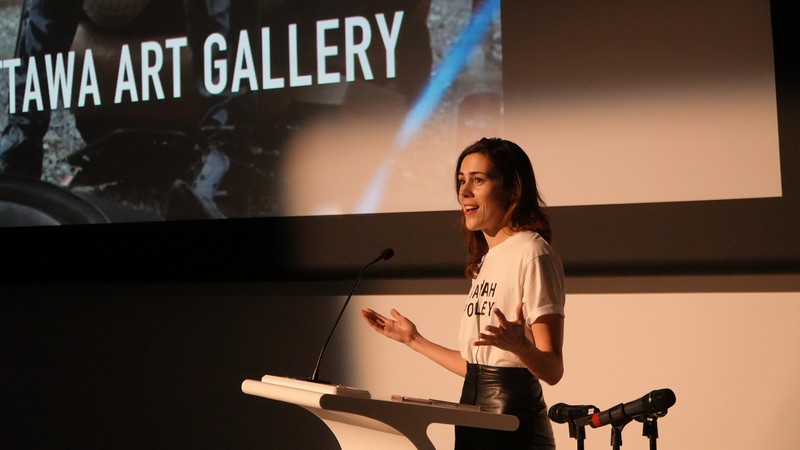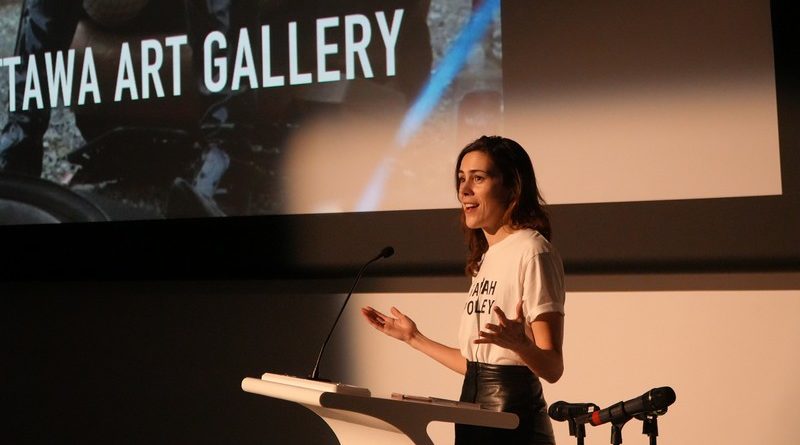International Film Festival opens windows on the world
Paula Kelsall
The third annual International Film Festival of Ottawa, which was held from March 8-19, brought a world of cinema to Sandy Hill. Most of the festival’s screenings and events took place at the ByTowne Cinema or the Ottawa Art Gallery. Even though these two venues are so close together, with half a dozen films to choose from some days there were often difficult decisions for the filmgoer to make, and here the ByTowne may have had the advantage, with its fresh popcorn and fine selection of beverages.
With around forty films from countries as geographically diverse as Senegal, Romania, Brazil and Japan, the IFFO provided lots of scope for vicarious travel, sometimes to very out-of-the-way places. It was deeply engrossing to witness the story of two young women growing up in Kazakhstan in the film Balaban, for instance. The film combined elements of modern romance and old-fashioned suspense with a look at the trade in endangered falcons and the situation of young people living with HIV.
In Marcel!, we followed the young daughter of a family of street performers through the streets of her Italian neighbourhood. Sword fights with the boy next door, saxophone practice, and fruitless attempts to attract the attention of the popular roller-skating girls down the street all give way to a road trip, as she and her mother head for an out-of-town theatre festival, and the audience sinks into a rather surreal dream of summertime in Italy.
Some of the films also crossed national borders to remind us of the vibrant global village that our world has become.
Return to Seoul tells the story of a young woman, adopted in Korea and raised in France, who returns to the country of her birth. This film has stayed at the ByTowne for an extended post-festival run, and it’s a fascinating look at the challenges faced by a young person forging her identity while investigating cultural and family connections that have been mysteries to her.
Queens of the Qing Dynasty shows the growing friendship between Star, a young woman in Cape Breton who has been hospitalized following a suicide attempt, and An, the Chinese university student who is her volunteer visitor. An, who is gay and loves to sing Chinese opera, is a vivid contrast to the taciturn Star, but these two atypical individuals are able to see each other without judgement and make a strong connection.
Maya Nilo (Laura) is a riotous road trip of a movie about two sisters from Sweden who hit the road for Portugal when their mother informs them that she is having a health crisis. Nilo’s daughter Laura, who is enjoying an online flirtation with a boy in Germany, comes along for the ride and is the catalyst for a detour to Hamburg.
Each screening in the festival was preceded by a short film. My single favourite movie in the festival might have been Desi Standard Time Travel, the tender-hearted, 24-minute story of a young man on the verge of fatherhood who is given the opportunity to travel back in time for a quick visit with his deceased parents at the same stage in their lives.
There was an interesting echo of the time travel device, and the longing to connect with parents, in another short film, Likeness, which showed an older woman and her daughter experiencing the confusion of the mother’s dementia as literal shifts in time and identity.
As befits any festival worth its salt, IFFO also gave audiences a chance to hear from the makers of the films. Ziyin Zheng, one of the stars of Queens of the Qing Dynasty, charmed us with his account of his transformation from foreign student to scriptwriter and actor. Emily Diana Ruth, the director Likeness, led the audience in a discussion of mother-daughter relationships after her film was screened along with Maya Nilo (Laura).
There’s something about a festival and the experience of taking in several films or plays in a short span of time, encountering the people who worked on them, and going home to talk about them with your companions. It shakes you up a bit, freshens your view of the world, and reminds you of what a creative species we belong to. I can hardly wait for next year.

Photo IFFO
